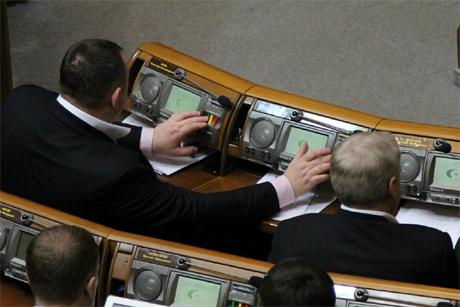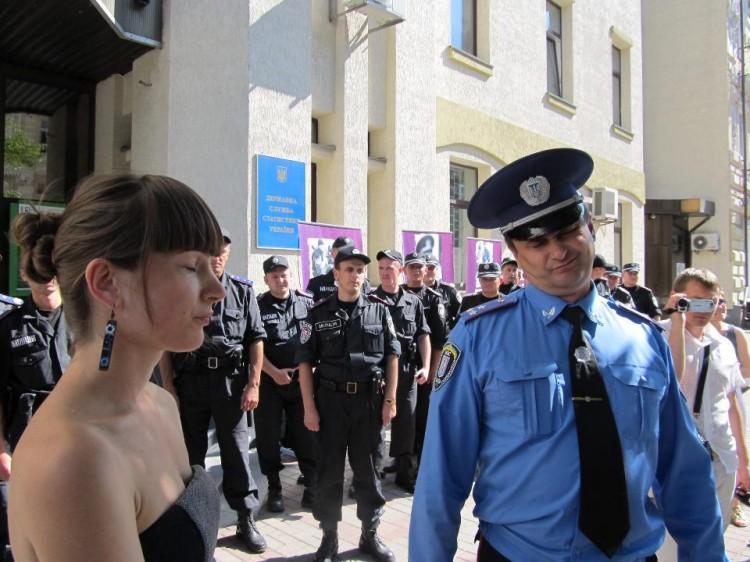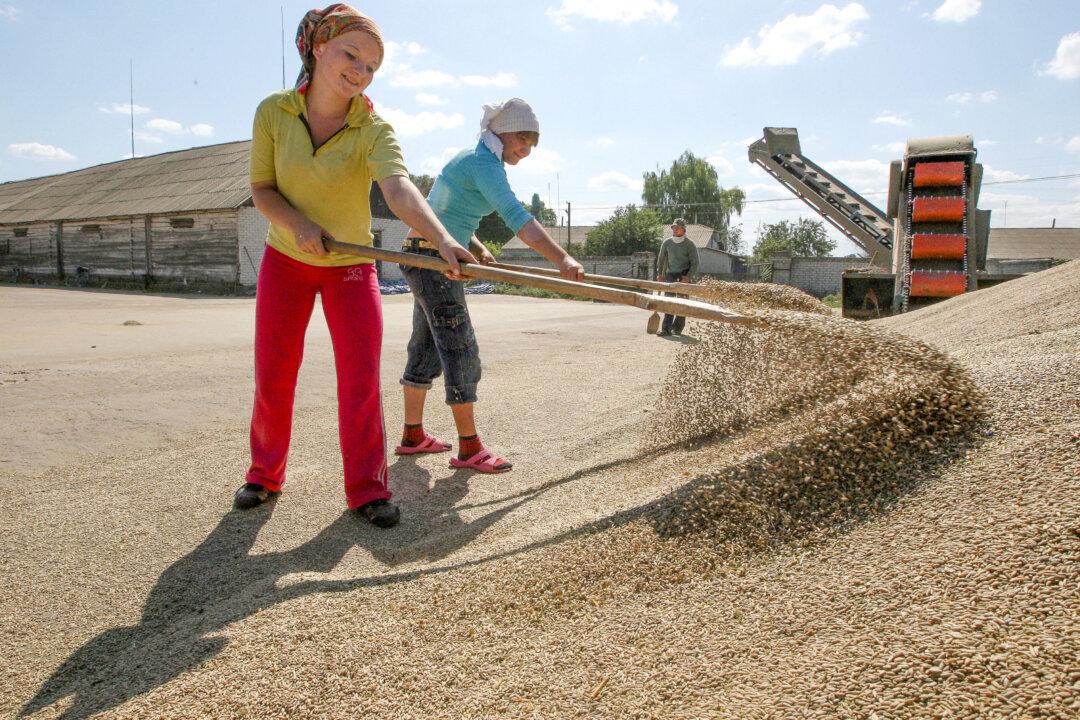KYIV, Ukraine—Describing the human rights situation in Ukraine over the past year, an annual report published by local human rights groups modified the old Ukrainian proverb, “A spoonful of tar in a barrel of honey.”
The report, published Feb. 27, calls human rights progress in Ukraine, “a spoonful of honey in a barrel of tar”—there have been some improvements, but generally the situation has worsened.
The Ukrainian Helsinki Human Rights Union and the Kharkiv Human Rights Group gave an example of the “tar”: Police arrested many activists participating in a public-awareness campaign called Human Rights Offside at the Euro 2012 soccer championship.
The Barrel of Tar
Nazariy Boyarskyi, one of the organizers, wrote in an email to The Epoch Times: “Liquidation of the educational exhibition Human Rights Offside is a graphic confirmation that authorities don’t want to reveal the true situation in the country.”
Eugene Zakharov, director of the Kharkiv Human Rights Group, said the courts are not held accountable.
“Without a strong court authority, without a strong justice, it’s impossible to defend human rights at all,” Zakharov said.
According to a poll conducted by the sociology department of the Razumkov Centre in December 2012, 55 percent of Ukrainians have lost faith in the judicial system. Many believe the courts serve court officials’ interests rather than the interests of the people, Razumkov Centre sociologist Andriy Bychenko told The Epoch Times in December.
Judiciary reforms are one of the conditions the European Union (EU) has placed on Ukraine if it is to enter an association agreement with the country—an initial step in letting Ukraine become a member state.
Other conditions include releasing jailed opposition leader former Prime Minister Yulia Tymoshenko and former Ukraine Interior Minister Yuriy Lutsenko, and addressing the democratic shortcomings revealed by the national elections fraud claims in October 2012.
A Council of the European Union document from December 2012 expresses the expectation that “the Government of Ukraine to implement in an inclusive dialogue with the opposition the public commitments made by the Prime Minister of Ukraine, including early steps to establish a reliable electoral system based on an Election Code and clear rules for balanced media access for electoral competitors.”
Zakharov said none of the EU-recommended reforms have significantly moved forward despite the promise Prime Minister Mykola Azarov has made to follow suit.
The Spoonful of Honey
One of the most positive steps the government has taken, according to the rights groups’ report, is the establishment of a Human Rights Ombudsperson.
The new ombudsperson, Valeria Lutkovska, has, according to the report: “begun building national preventive mechanisms for fighting torture and ill-treatment, mechanisms for parliamentary scrutiny of access to information and personal data protection; [and] submitting recommendations to parliament on draft laws concerning human rights, some of which were taken on board.”
The report notes that other reforms have taken place in the country recently, but they are not related to human rights. Reforms have focused on education, transportation, taxes, pensions, and health care.
The rights group believes that human rights reforms are made mostly out of fear that international institutions will impose sanctions on Ukraine, as EU pressure for reform ramps up.
“While Yulia Tymoshenko and Yuriy Lutsenko are in custody, we can forget about Euro-integration. Rather, we should expect sanctions,” Zakharov said. “State leadership can’t understand that, regardless of any successes, the West won’t forgive politically motivated criminal affairs against political opponents, [who], in the conclusion of many international and national experts, haven’t committed criminal deeds.”
The Epoch Times publishes in 35 countries and in 21 languages. Subscribe to our e-newsletter.






